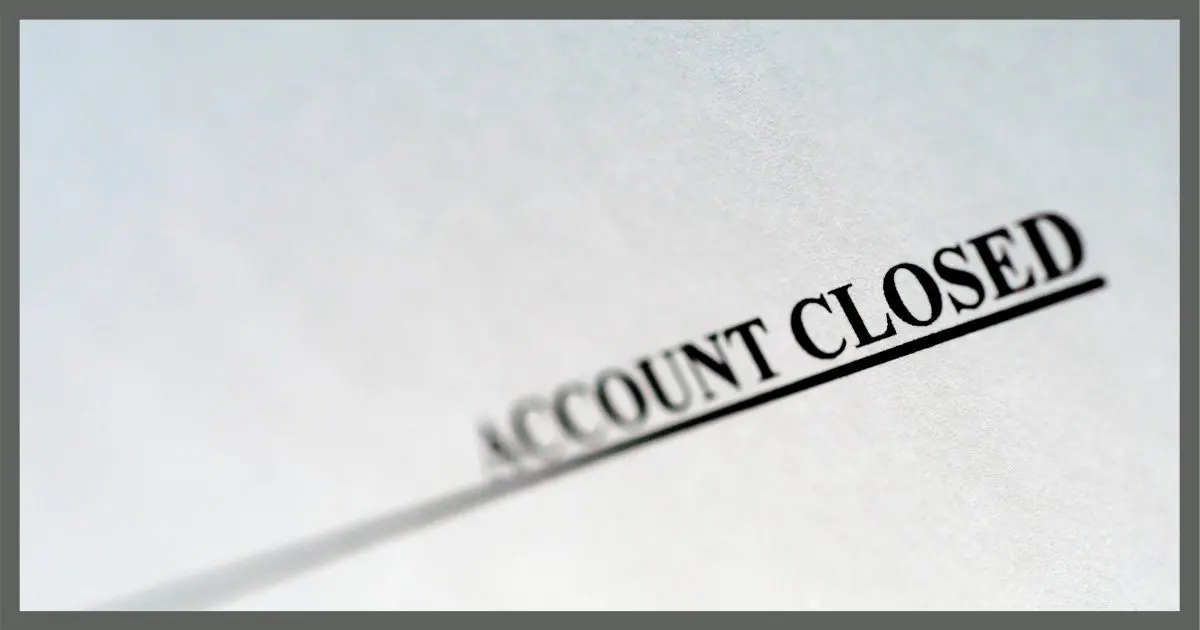Maybe.

Could that person try to impersonate you? Certainly.
Would that person see everyone on your contact list? Certainly not.
This is an important aspect of account ownership that applies to all services, not just Yahoo.

Reopening a closed account
When you close or abandon an email account, it’s possible that after some time, your user ID or email address could become available for someone else to use. While they would not have access to the previous contents of your account, they would have access to email still being sent to that email address, and could use it to try to impersonate you. It’s safer not to close or abandon email accounts, but rather check in just often enough to keep them from being reassigned.
Grace period
When you close or abandon your account with any online service provider, they typically make your abandoned username and email address available again after a period of time. To anyone. As if it had never been used before.
All someone has to do is sign up and ask for it.
For most services, if you log in again before time runs out, it tells them you’re not abandoning the account and resets the clock. Even if you go through the provider’s steps to cancel an account, there’s often a grace period during which you can change your mind, log in, and “un-cancel” the account.
Things get a little confusing when people use multiple services from the same provider. For example, your Microsoft account is at once an email account, your OneDrive account, and perhaps your computer’s login account. Using any of these services keeps the entire account active. You can’t close only your Microsoft email account while keeping your OneDrive account with the same email address. The same is true for all multiple-service providers, including Google and Yahoo!
Help keep it going by becoming a Patron.
When?
If you abandon or explicitly close your account, exactly when it’s returned to the pool of names varies greatly.
For example, if you close your account with your ISP, they could make your ID available again the very next day if they wanted to, and I’m sure some do.
Most free services like Yahoo! and others wait at least 30 days, and most wait much longer.
What happens?
I believe that closing and abandoning an email account are similar processes and follow the same general sequence of events; but remember, this is up to each service provider and can change without warning or notice.
We begin by abandoning the account. That means you don’t use it in any way. You don’t log in to the account or any service related to the account. Not even once.
After some period, the service notices that you haven’t logged in and considers your account abandoned. At this point, typically:
- Any email, files, or other items stored in the account are irretrievably deleted.
- Any contacts, friends, or similar lists are irretrievably deleted.
Your account is effectively gone. You may be able to re-open it by logging in again, but all of your previously stored data will be gone.
After some additional period, the service removes the “login to re-open” option completely. You cannot get the login ID (i.e., email address) back once this happens.
At the same time, or perhaps after some additional time, the service will release the email address or ID back into the available pool. Now someone — anyone — could come along and request your old email address and get it.
When someone else has your old email address
It’s important to realize that when someone comes along and requests your abandoned email address, they get a completely new account. There is nothing in that account that relates to your old account except the email address/login ID.
As part of the closing process, the service deleted all your stuff before they close it. It’s gone. You can’t get it, and neither can the person who now has your old email address.
However.
What they will get is any new email sent to your old email address. Deleting your account did nothing to tell the world that the email address isn’t yours anymore. Even if you tried to broadcast the change, it’s likely that not everyone got the message or updated their records. Chances are that your old email address is still in someone’s address book or included on some mailing list somewhere.
The new account owner will get anything sent to your old address. And they will be sending “From:” your old address.
I hope that’s all OK because there’s nothing you can do about it.
OK, there is one thing.
Don’t close the account
If the possibility of someone else getting email intended for you but sent to a long-abandoned email address bothers you, the solution is simple.
Don’t abandon it. Don’t close it. Keep the account open. Check in every so often so it stays open.
Keep it yours, and you won’t have to worry about a thing.
Do this
If you close or abandon an email account, that email address may someday be reassigned to someone else. If that’s a concern, don’t close the account.
Subscribe to Confident Computing! Less frustration and more confidence, solutions, answers, and tips in your inbox every week.




I have an email account that I opened in the mid-90s. I stopped using it a few years later but I kept it open by checking it monthly. 10 years later, I got an email from an old friend whom I hadn’t heard from in years.
Leo,
Suppose an ISP (or another email service like Fastmail… or even Yahoo) decides to shut down. All the email addresses will go “poof”. What happens if someone later decides to buy the same domain and start another email service? Do Domain Registrars prevent this from happening? I ask, because years ago I had a Webtv and had a Webtv email address (I believe WebTV was bought out by Microsoft and they later “killed” Webtv). It is a long-shot, but if the domain Webtv ever came back to life and email was offered, someone could potentially acquire my old address. I’m sure someone still has my old Webtv address in their address book.
To your situation: the webtv domain is still owned by Microsoft, and they even still support its email. While you can’t get new webtv email addresses, the old ones continue to work (login via outlook.com). I have a friend who’s still using her webtv email address to this day. No reason to switch, as I don’t expect Microsoft to ever let that domain go.
That being said in the general case: no, registrars have nothing in place to prevent this (when you get into the details it’s really hard to know who should and should not be allowed to re-purpose a domain). The bottom line is your disaster scenario could absolutely happen, but it’s extremely unlikely for major, popular services.
If something like that happened, it wouldn’t be any different then the scenario described in the article. It’s a completely new account. They would only get any email sent to you after opening that account. It’s a good reason to stick with a major provider that you don’t expect to go belly up. I lost an account when a free email provider went out of business in the 90s.
Back when I was young, in the days of dinosaurs and land lines, most folks had a phone–a landline phone–with a phone number assigned by The Phone Company. When we moved, we had to change to the “exchange” of our new town, which meant a new 3-digit prefix. Later, of course, area codes were also important.
Eventually, someone else would move into our old town–not even necessarily our old address, just our old town–and that newcomer would be given a “new” phone number, which had previously belonged to us. As I recall Ma Bell (AT&T), which had a monopoly on phone service nationwide, would try not to reuse phone number for six months.
But we’d all get calls–sometimes for years–from people wanting to speak with Arlo or Ann, who, we finally figured, must have had the number before we did.
It’s sort of like that with reusing email addresses, except that the number of possible phone number combinations for a city was decidedly small–well under 10,000,000. (Phone numbers couldn’t start with 0, or 1, and in some areas, the second digit was used to indicate the phone was a pay phone. … Anyway, we managed. We might have gotten someone else’s calls, and someone else got ours, but we never–or extremely rarely–made a friend of someone’s old friend..
I think it’s kinda like that with email.
You’re lucky. We once inherited a phone # from a couple of “exotic dancers”. We complained to the phone company and they said they could change our number for a fee.
Same thing happed to us when we moved to a new state. Luckily Call Blocking was invented. I even have land line phones that blocked calls but the blocked calls eventually filled up the memory for the phone.